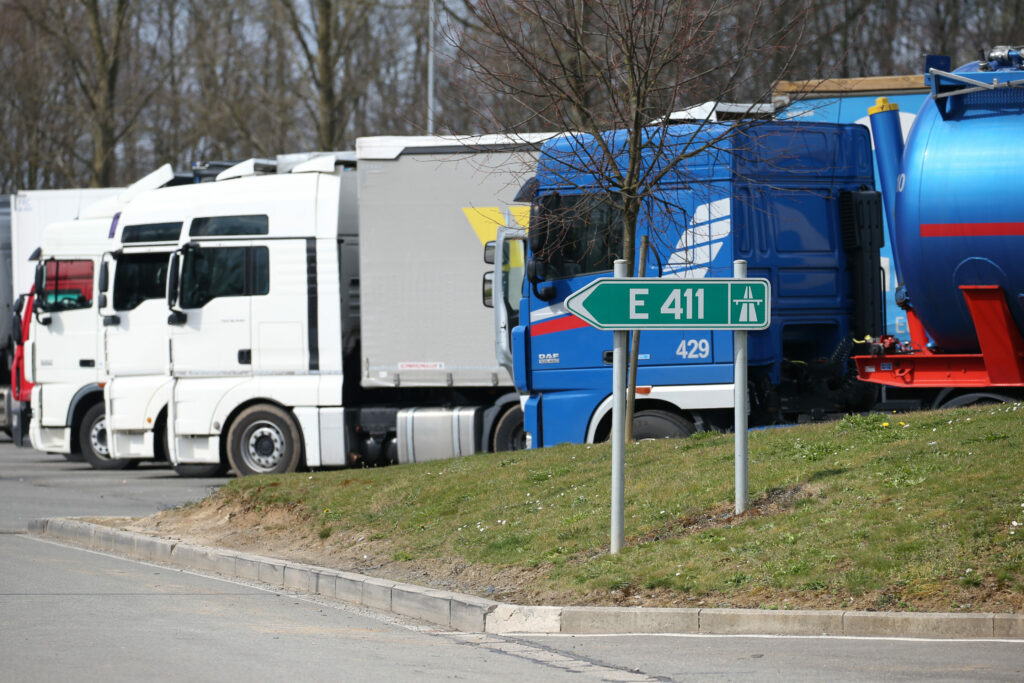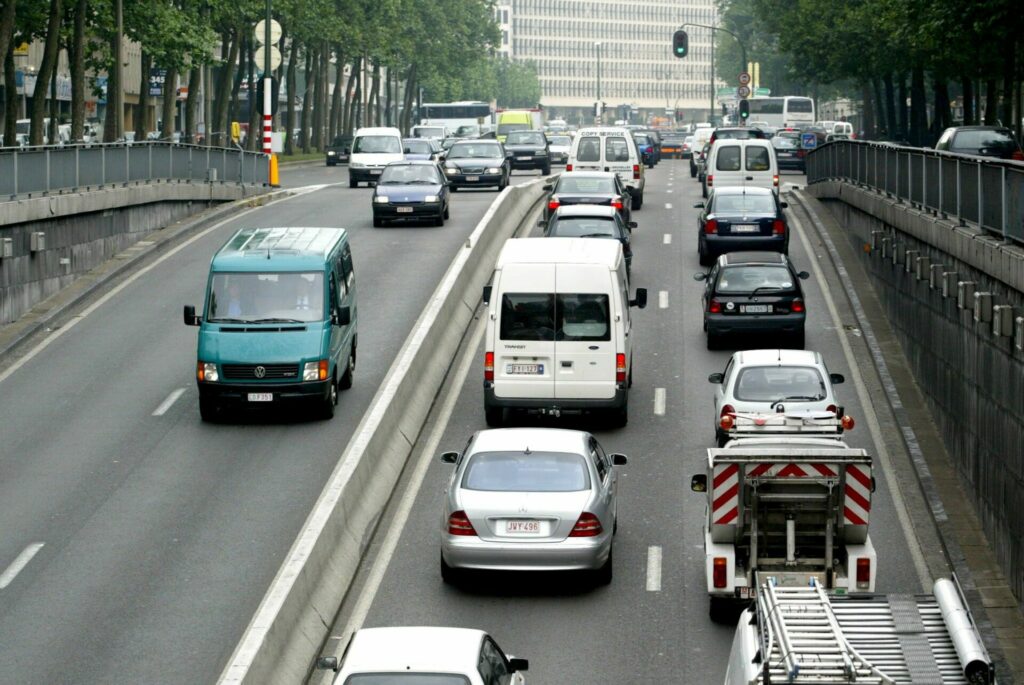Driving recklessly in another country will now be able to be punished more thoroughly, with the EU reaching a deal to ensure better cooperation between Member States in cross-border investigations of traffic offences.
To prevent reckless driving while abroad, the list of traffic offences committed by non-resident drivers that trigger cross-border assistance – speeding, drink-driving or failing to stop at a red light – has been expanded to include dangerous parking and overtaking, crossing a solid line and hit-and-run offences.
"Letting foreign-registered drivers get away with traffic offences is unfair and makes our roads less safe. It is great that the EU is not only extending the range of traffic offences that can be followed up across borders but also improving the chances of fines being paid," Ellen Townsend, Policy Director of the European Transport Safety Council (ETSC), told The Brussels Times.
"There is still more that needs to be done. We need a way of applying penalty points across borders too," she said. "Nonetheless, this deal is a step forward for road safety and the Belgian presidency of the EU deserves a pat on the back for seeing this through."
Nearly 40% go unpunished
With approximately 40% of cross-border offences currently going unpunished, MEPs secured more robust assistance procedures between EU countries and an obligation to help find a person liable for a traffic offence.
The deal obliges EU countries to reply to this kind of request without any undue delay and within two months of gathering the necessary information. Additionally, once authorities of the country in which the offence occurred have requested driver information, the offender’s country of residence can take on the collection of road traffic fines, provided the fine is over €70 and has not been paid after all legal actions are exhausted.
The EU country where the traffic offence occurred will have 11 months from the date of the offence to issue a traffic offence notice. The deal also lists the main elements of this offence notice, which, in addition to the time and circumstances of the offence, has to provide information on how to appeal the fine.

Credit: Belga/Bruno Fahy
MEPs also succeeded in negotiating a provision whereby two years after new rules are transposed into national law, private entities will be totally banned from helping EU countries collect traffic fines from foreign drivers.
To increase transparency and facilitate the implementation of the new rules, the Commission is tasked with creating an online portal listing the rules, appeal options and the relevant road traffic fines.
"A foreign number plate cannot be a licence for impunity on the road. The updated rules will facilitate the exchange of information on road traffic offenders between Member States while ensuring drivers have easy access to the necessary information through digital communication channels," said EP rapporteur Kosma Złotowski (ECR). "Drivers must be given adequate and timely information in a language they understand about their rights and the procedure for appealing against a penalty."
Over 2,000 cyclists killed
Despite a number of new measures, the EU is unlikely to achieve its road safety targets of halving road fatalities by 2030 and having close to zero fatalities by 2050. Over 2,000 cyclists were killed on European roads in 2022, according to figures published by the European Commission.
This is the only category of road users that has not seen a significant decrease in fatalities over the past decade, the Commission stated. "The escalating number of cyclists killed on EU roads is a serious concern, as cycling’s popularity continues to grow."
It points to a lack of adequate infrastructure and dangerous behaviours by road users. Preliminary data for 2023 shows that about 20,400 road fatalities took place last year – down just 1% from the 20,600 victims in 2022. While this is a 10% reduction since 2019, the downward trend has levelled off in several Member States.
Related News
- Practice period and mandatory training: Flanders toughens rules to pass driving test
- UK still illegally collecting traffic fines from Belgian visitors
In the past four years, fatalities have scarcely fallen in Spain, France, and Italy; they have risen in Ireland, Latvia, the Netherlands, Slovakia, and Sweden. On the other hand, Belgium, Czechia, Denmark, Hungary, and Poland are on track to achieve the EU's target of halving the number of deaths on the roads by 2030.
In 2023, Sweden (22 deaths per million inhabitants) and Denmark (27 per million) maintained the safest roads. Higher mortality rates were reported in Bulgaria (82 per million) and Romania (81 per million) during 2023. The EU average was 46 road deaths per million inhabitants.

